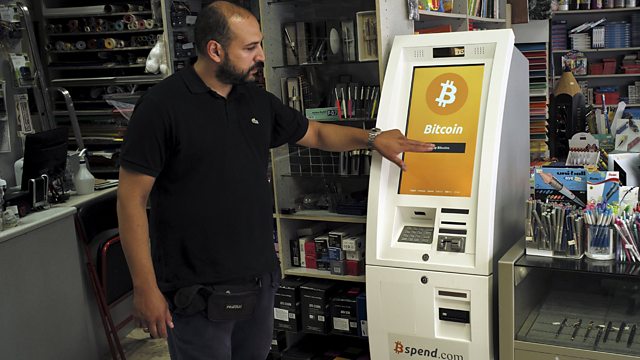Could Bitcoin Solve Greeks’ Online Payment Problems?
Bitcoin in Greece; Health hacking Biosensors; Hacking Parkinson’s; Solar Library.
Greeks are turning to the decentralised crypto-currency Bitcoin. It is money that is entirely digital and exists as strings of encrypted numbers on volunteers’ computers around the world. Being decentralised like this keeps it out of the reach of regulators. Andreas Antonopoulos, Bitcoin expert, explains more.
Health Hacking Biosensors
Body sensing technology opens a world of possibilities for improving our health. In the elderly, and those with chronic diseases, wearable sensors can flag signs of deterioration so that doctors or carers can take action to prevent a crisis. Through links to mobile devices and social media, body sensing technology could also encourage more of us to stick to healthy habits. Gareth gets a demo at the Hamlyn Centre at Imperial College.
Hacking Parkinson’s
Sara Riggare was diagnosed with Parkinson’s disease in her thirties. Sara happens to have an engineering background and is interested in how well her symptoms relate to her medication, so with other technologists, she is developing a couple of apps to help her monitor her illness.
SPELL Solar Digital Library
Students in Cal Poly’s Liberal Arts and Engineering Studies (LAES) have put together an innovative project to provide SPELL, a solar powered digital library for people in Micronesia and Vanuatu in the wake of the recent devastation. Click discusses the project with the team leader, Laura Hosman.
Photo caption: A man demonstrates the use of a Bitcoin ATM at a bookstore in Acharnai in northern Athens, Greece © REUTERS/Dimitris Michalakis
Producer: Marnie Chesterton
Last on
More episodes
Previous
Next
Clip
-
![]()
Bitcoin in Greece
Duration: 01:06
Broadcasts
- Tue 7 Jul 2015 18:32GMT´óÏó´«Ã½ World Service Online
- Tue 7 Jul 2015 23:32GMT´óÏó´«Ã½ World Service Online
- Wed 8 Jul 2015 04:32GMT´óÏó´«Ã½ World Service Online
- Wed 8 Jul 2015 15:32GMT´óÏó´«Ã½ World Service Online
- Sat 11 Jul 2015 15:32GMT´óÏó´«Ã½ World Service Online
Podcast
-
![]()
Digital Planet
Technological and digital news from around the world.



